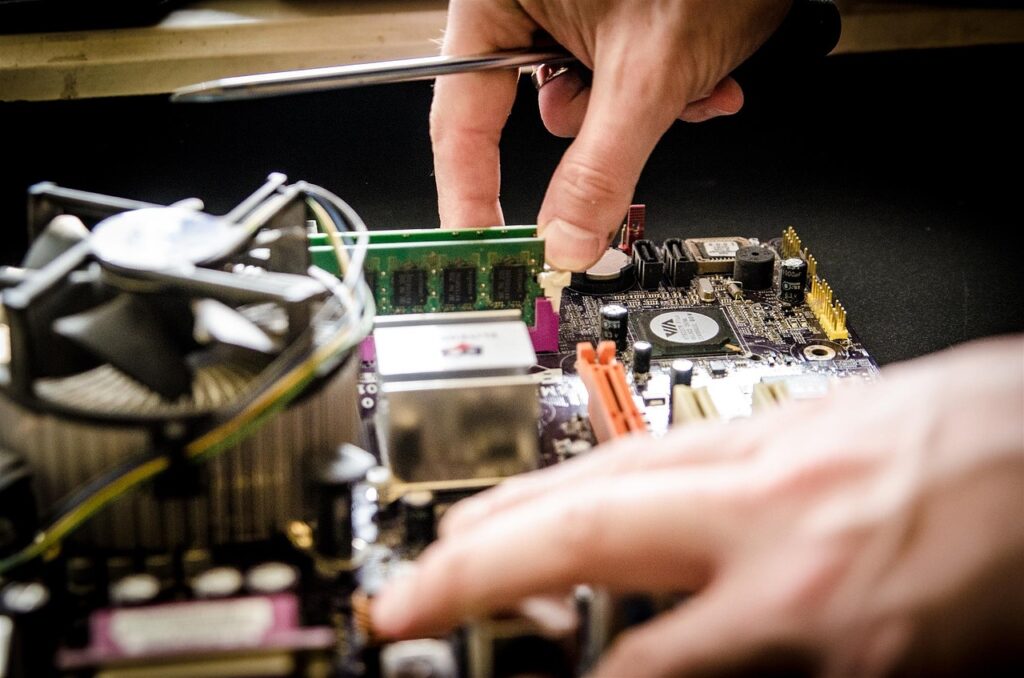15 Small Business Ideas You Can Start in the Philippines (2024)

Micro, small, and medium-sized enterprises (MSME) greatly contribute to the Philippine economy.
According to the latest figures from the Philippine Statistics Authority (PSA), a total of 1,109,684 businesses were recorded in 2022. Nearly 100% of that number is made up of MSMEs, with the vast majority categorized as micro enterprises. Meanwhile, only 0.41% are large enterprises.
Are you thinking of getting into business yourself? For starters, you’ll need to know how to write a business plan and find a business structure that works for you.
If you’re up to the challenge, we’ve compiled a list of small business ideas you can explore further. You can start many of these ventures on your own, either as a sole proprietor or one-person corporation.
See which ones fit your interests, skills, and professional experience.
Content summary
🎯As the business grows, you’ll likely need to invest in additional inputs to sustain momentum (e.g. updated certifications, additional equipment, marketing).
🎯Time-tracking is essential for many consulting businesses, where clients mainly seek out your time and hard-earned expertise and insights.
🎯Service-oriented businesses (e.g. car wash, laundromat) often need sufficient staffing to start.
🎯Investing in a franchise can be capital intensive, but it saves you the work of conceptualizing a new product.
Business ideas with a starting capital of Php 60K or less
1. Fashion and beauty reseller
Initial investments: Clothing and beauty products, packaging materials, marketing
Potential costs to consider: Dedicated camera, website
Filipinos enjoy looking good and staying in fashion. If you have an exceptional eye for style, starting a fashion/beauty reselling business may be a promising venture. Do take note that this market is quite competitive already, so finding a niche can help you standout.
Finding a reliable product supplier is another key to success. Whether you’re planning to sell men/women apparel, footwear, or cosmetics, you can start small and grow your offerings over time.
2. Hair and grooming (home service)
Initial investments: Hair products, grooming equipment,
Potential costs to consider: Marketing, dedicated camera, website
If you’re a barber or hairdresser, you can make your skills available to clients via home service. This can also be a good business if you’re an entrepreneur who is already familiar with this industry and knows people for the job.
When done right, professionals in this field eventually build a steady stream of clientele — who typically help spread awareness via word of mouth to friends and family. If you plan to grow the business further, you may want to invest in a dedicated camera and website to showcase your services to an even wider market.
3. Event planning/hosting
Initial investments: Building connections, computer
Potential costs to consider: Marketing, additional licenses/certifications, staffing
If you make a living on your organizational skills, event planning and/or hosting may be a good fit — especially with strong prior experience.
Identifying an event specialty will be important in determining success. You can specialize in various types of gatherings, such as birthday parties, weddings, anniversaries, and corporate events.
While spreading the word via referrals is a good starting point, you may need to beef up your online presence if you want to go beyond your personal network.
4. Business consulting
Initial investments: Building connections, computer, time-tracking tools
Potential costs to consider: Additional licenses/certifications, website, staffing
The field of business consulting is wide, encompassing finance, technology, marketing, and operations, among others. This is a common venture among professionals who have gained sought-after knowledge and experience within a booming sector.
Depending on your experience, you could be helping small firms with market research and financial analyses of opportunities. Or, you might be starting out with bigger projects developing sustainability plans and overall hiring strategy.
Finding paying clients (especially recurring ones) is often the initial challenge since you’re relatively new and unknown. You’ll need to get yourself out there by networking and utilizing mutual connections.

5. Real estate consulting
Initial investments: Licensing, building connections
Potential costs to consider: Agent-specific marketing tools, website
There’s plenty of real estate opportunities in the Philippines, especially in up-and-coming locales and urban areas. Naturally, buyers and sellers will be looking for sound real estate advice to guide their decisions.
Whether you already have experience as a professional agent or have a keen interest in the industry, starting a real estate consulting business may prove fruitful.
You’ll need to identify your areas of expertise. Are you specializing in residential or commercial transactions? Do you work mostly with just buyers or sellers — or both? Or, are you primarily focused on providing property management services?
To grow your clientele list, you’ll also need to build up your network through social events and professional functions. Using effective presentation and marketing tools will be crucial in making a convincing pitch.
6. Bookkeeping/accounting
Initial investments: Licensing and certifications, bookkeeping software, document scanner
Potential costs to consider: Additional training, time-tracking tools
Do you have bookkeeping and/or accounting experience? It’s not unusual for professionals in this field to go solo or even lay the foundations for their very own firm.
You may find promising clients among other freelance professionals who need someone to do their taxes. Depending on your level of expertise, you’ll need to figure out if you’ll be charging by the hour or on a per output basis.
💡Set a budget for business registration costs
Registering a business involves the submission of a proposed business name, relevant paperwork, and payment of fees. Business owners who earn Php 250,000 or less in a year are exempt from tax registration and payment.
Local agencies you’ll transact with include the Department of Trade and Industry, Securities and Exchange Commission, Bureau of Internal Revenue, and the relevant local government unit.
Loft offers business registration servicesto help startups in the Philippines navigate the local regulatory environment with ease. For existing business owners, Loft also offers business renewal services. Send us an email at [email protected] or call us at +63-917-899-1111.
Business ideas with a starting capital of Php 60K to 200K
7. Cleaning services
Initial investments: Cleaning products, protective equipment, social media page
Potential costs to consider: Booking platform/software, point of sale (POS) system, additional training/certifications, marketing
People will always need their cleaning done. There are many ways to go about a cleaning service business. You can serve households, offices, condo buildings, and restaurants, to name a few examples.
You can start small as well, building your reputation steadily by word of mouth. If you have plans of growing it to a larger operation, you’ll need to set up a service booking platform and invest in marketing efforts.

8. Repair services
Initial investments: Repair supplies, protective equipment, social media page
Potential costs to consider: Computer, booking platform/software, additional training and certifications, marketing
Things break down and get damaged all the time, but not everyone has the patience and expertise to do the repair themselves. This is how repair service businesses thrive, especially in the Philippines where people usually keep their appliances and gadgets for far longer.
Your initial cost of investment on equipment will depend on your expertise, whether it’s fixing appliances, smartphones, computers, vehicles, or industrial-grade equipment. Keep in mind though that handling special equipment will incur higher costs and need highly skilled knowledge/training (e.g., Apple devices, bicycles, cars, trucks).
9. Meal planning and delivery
Initial investments: Ingredients, kitchen equipment, meal containers, packaging
Potential costs to consider: Delivery vehicle, staffing, marketing
A meal delivery service is a great option if you’re in a business district or a rapidly urbanizing area — where many busy professionals don’t have time to cook.
Depending on your cuisine and your exact startup capital, you may be in a position to offer meals most days of the week. A key element to success will be offering healthy options that potential customers don’t usually have time to prepare themselves.
10. Website development
Initial investments: Web development tools, computer, website
Potential costs to consider: Marketing, time-tracking tools, additional training/certifications
Creating a website helps businesses and creators find their target customers and audiences. Although not everyone has the skills and patience to build one.
That’s where you can come in and offer it as service, provided you have the skills and experience to do so. The best way to get clients is to build a website for the business, where you can showcase what you can do for them.
Your exact startup capital will depend on the resources you already have and the types of clients you plan to pursue — from individual professionals to small businesses.
11. Graphic design
Initial investments: Computer, professional editing software
Potential costs to consider: Time-tracking tools, additional editing tools, website
The world of graphic design is broad. You can create logos, newsletter templates, website banners, information brochures, and so much more.
It’s a great business idea if you naturally gravitate to this line of work and possess the relevant experience. Startup costs will likely be significant at first; you need to make sure your tech and other essential tools don’t fail at the most inconvenient times.
Business Ideas with a starting capital of over Php 200K
12. Photography/videography
Initial investments: Lenses, computer, professional software, lighting equipment
Potential costs to consider: Additional cameras and editing tools, file storage, branding
Assuming you have experience as a professional or hobbyist, you likely already possess the basic equipment and knowledge to start with. If you haven’t yet acquired all the necessary equipment, you’ll be spending quite a lot in your first few months.
Make sure to nail down a photography style or niche that you’re confident with. Whether it’s taking family portraits, outdoor photography, or editorial shots for publications, focus on building a solid portfolio that can make a good impression on clients.
13. Food cart/kiosk franchise
Initial investments: Franchise package (upfront fee), site analysis, hiring
Potential costs to consider: Additional supplies, ad hoc improvements
With a proven business model, you’ll save time and effort on coming up with ideas for a unique product or service. The trade off is that you’ll need to pay an upfront cost for the franchise package — in addition to royalty fees.
Now to be clear, there are less expensive franchises. But if you’re setting your sights on more popular brands like Potato Corner or Belgian Waffles, expect to spend an initial 300K or more.
Because of the relatively high capital and royalty fees, many franchisees feel a lot of pressure to hit sales targets almost immediately. Business savvy will be indispensable if you want to hit your margins. For more tips, check out our blog post on starting a food cart franchise business.

14. Laundry shop
Initial investments: Washing machines, dryers, detergent supply
Potential costs to consider: Marketing, POS system, equipment maintenance
Starting a neighborhood laundromat can be profitable if you see a strong need in a particular area. Outside business districts, it’s crucial to choose a location that’s convenient and accessible.
In terms of marketing, you can start with creating an attention-grabbing logo and signage to make your brand easily recognizable. If you’re planning long-term, make sure to allocate a budget for machine repairs/maintenance to minimize downtime.
15. Car cleaning and detailing
Initial investments: Garage space, cleaning supplies, hiring, signage
Potential costs to consider: Marketing, POS system
While it might be a stretch to say they’re obsessed with cars, Filipinos do have a soft spot for their motorized steeds. If you’re a vehicle enthusiast, starting a car wash/detailing business might work for you.
Similar to a laundromat, location will be a key factor that will determine success. And like any brick-and-mortar business, eye-catching and on-brand signage is essential.
It’ll be difficult to service each customer without sufficient staffing. So even if you plan on working in the shop full-time, you’ll need to think about hiring help right from the get-go.
Kickstart your business with Loft
If you want to learn more about the specific industries where Philippine MSMEs are concentrated, check out quick statistics from PSA here.
When you’re ready to start your business journey, contact Loft for a free business consultation. You can send an email or give us a call at +63-917-899-1111.
Alternatively, you may complete the short form below to get in touch with our team.